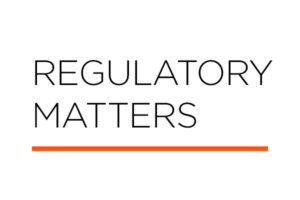
As part of its ongoing review, the European Securities and Markets Authority (“ESMA”) has issued a Call for Evidence on the implementation of the Shareholder Rights Directive II (“SRD II”). Specifically, ESMA is seeking input on how investors, issuers, intermediaries and proxy advisors “perceive the appropriateness of the scope and the effectiveness of the [SRD II] provisions on the identification of shareholders, transmission of information and facilitation of the exercise of shareholder rights, as well as on transparency of proxy advisors.”
Responses are due by November 28 and ESMA will use the information it collects to inform recommendations it plans to make to the European Commission in Q3 2023. Glass Lewis encourages all interested clients and others to consider responding to the Call for Evidence on these important issues.
Background: Planned Review of SRD II
When it was adopted, SRD II called for the European Commission, in close cooperation with ESMA, to carry out post-implementation reviews of certain of its provisions and report to the European Parliament by June 2023. Consistent with these directives, ESMA’s Call for Evidence relates to the following provisions in SRD II –

ESMA broadly seeks market participants’ perspectives on the appropriateness and effectiveness of these parts of the current regulatory framework, as well as to learn about any possible difficulties encountered in their practical application, and to understand relevant market developments.
Discussion: ESMA’s Call for Evidence
The Call for Evidence is structured in two parts. The first part has 25 questions directed to all stakeholders, which seek their general views on the effectiveness of the relevant SRD II provisions, as well as how they relate to aspects of the Capital Markets Union Action Plan. The second part consists of specific questions for investors, issuers, intermediaries, and proxy advisors.
Investors (in particular, shareholders of EU listed companies) are invited to answer Questions 26-41, which ask about any “remaining obstacles to the effective exercise of [shareholder] rights and the extent up to which shareholder engagement is achievable under this framework” (Q26-Q35), as well as the views of investors who use proxy advisors on the transparency of those advisors (Q36-Q41).
We believe all of the relevant provisions of SRD II under review are important aspects of the proxy voting system and encourage our clients and others to consider offering their views on their implementation and effectiveness.
SRD II on Proxy Advisor Oversight
As it relates to proxy advice, SRD II required proxy advisors, on a comply or explain basis, to have and publicly disclose a code of conduct that they apply and report against. Proxy advisers must also annually provide information related to topics such as their methodologies, quality controls, and engagement and conflicts practices. Proxy advisors can satisfy this requirement through their code of conduct report. Finally, SRD II requires proxy advisors to make conflict disclosures to their clients.
SRD II’s proxy advisor provisions build on the earlier work of ESMA. Specifically, in 2013, after a public consultation, ESMA found no evidence of a market failure and therefore announced that it did not see a need for binding or quasi-binding regulation of proxy advisors. Instead, ESMA asked the industry to develop a code of conduct, to be applied on a comply-or-explain basis.
Best Practice Principles Group
In response, Glass Lewis and other leading proxy advisors formed the Best Practice Principles Group (“BPPG”) to develop a code of conduct for shareholder research providers (the “BPP” or “Principles”). The BPPG developed the Principles with input from ESMA and other stakeholders, including numerous company respondents. Following a global, public consultation, the Principles were officially launched in March 2014 and were subsequently updated, mainly to account for SRD II requirements, in 2019.
Glass Lewis and the other BPP signatories each publish annual, publicly-available Statements of Compliance, featuring detailed information on how the organizations comply with the Principles. BPP signatories’ reporting is overseen by an Independent Oversight Committee (“IOC”), which is composed of both investor and issuer representatives, as well as independent members, including an independent oversight Chair. The IOC, among other things, conducts an annual review process for BPP Signatories’ compliance statements and publishes its findings on an annual basis to hold all members accountable. These IOC Reports, as well as the annual IOC Stakeholder Forums, contain concrete examples of how BPP signatories’ annual reporting and the IOC review process has led to improvement in proxy advisor practices with respect to each of the three core Best Practices Principles – transparency; conflict management and disclosure; and communications, including engagement with companies.
Regulators around the world — including France’s AMF and now the U.S. SEC — have recognized the BPPG and specifically the work of its IOC and, to varying degrees, leveraged it in their regulatory approaches. As the IOC noted in its most recent annual report, most jurisdictions around the world have “chose[n] to favor the approach of monitored self-regulation embodied in the BPP initiative.” In short, this self-regulatory approach is credible, well-established, and working.
See here for more on the Best Practice Principles Group.
Conclusion: How to Respond
Along with a planned Roundtable, ESMA’s Call for Evidence is a critical step in the European Commission’s reevaluation of these SRD II provisions. Again, we encourage all interested clients and others to consider responding to the Call for Evidence on these important issues by the November 28 deadline.
Responses can be submitted online at www.esma.europa.eu under the heading ‘Your input – Open Consultations’.
Given the continuous improvements the BPP have spurred in proxy advisor practices, investors and other stakeholders should urge ESMA to reaffirm SRD II’s sensible and successful approach to proxy advisor oversight.
